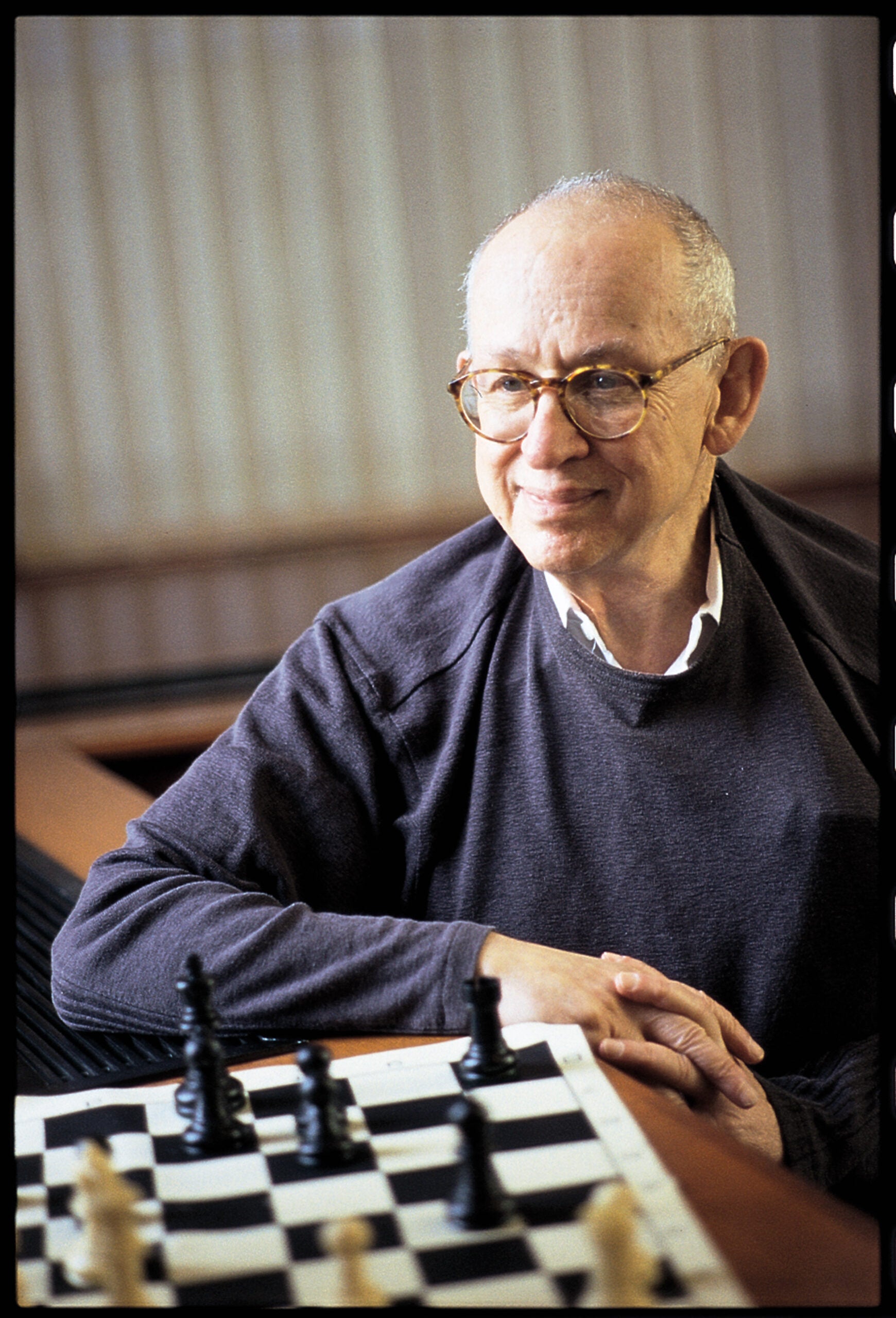“I’m just an amateur,” insists Harold Dondis ’45, writer of the Boston Globe‘s chess column for the last 37 years. In fact, Dondis is so modest that it’s not until ten minutes into a discussion about his favorite game that he offers, matter-of-factly, “I did beat Bobby Fischer one time.”
And unlike the countless other chess enthusiasts who’ve served up this line–perhaps from a bar stool–Dondis has the proof to back it up.
The year was 1964. Fischer, only 20 at the time, was touring the country and taking on the best amateur and professional chess players he could find. When he arrived in Fitchburg, Mass., on March 2, the man many consider the best ever to play the game met his match. “It was a fluke that I beat him,” Dondis maintains, but the spectators from the Wachusett Chess Club were apparently impressed. According to A Legend on the Road, the book that chronicles Fischer’s cross-country trip, Dondis was carried out of the room on the shoulders of the boisterous crowd after he defeated Fischer.
Dondis traveled to Iceland eight years later to watch Fischer take on Soviet grandmaster Boris Spassky and win the world championship. While Dondis was officially there covering the match for the Globe,his legal credentials enabled him to play a minor role in shaping the event. When Fischer clashed with the tournament’s sponsors over the number of video cameras allowed into the match, Dondis was brought in to assist with the negotiations. His legal training had paid off.
Dondis enrolled in HLS after earning a philosophy degree at Bowdoin College. “When people don’t have anything to do, they become lawyers,” he jokes, adding that he’s spent his entire career practicing at the Boston firm known today as Rich May. Despite having graduated 56 years ago, Dondis still considers himself a student. “I still study every day,” he says.
Today his studies tend to focus on specific chess moves. Dondis is fascinated by the ways people–and, these days, machines–develop mental strategies. He even spent 12 years writing a book on artificial intelligence. The fact that it was never published doesn’t seem particularly important to Dondis. For him, it seems, the journey is more important than the destination, which may explain why he’s now writing another book. “This one is about applied problem solving,” he says. “It’s just a hobby.”
When he’s not writing manuscripts or working in his law office, Dondis occasionally finds time to get in a game of chess against a steely opponent. “Fritz can see 235,000 moves a second,” he says about the computerized chess wizard that resides on his hard drive.
“There’s no doubt that chess is exploding,” Dondis adds, explaining that more and more people are playing the game. Earlier this year, he witnessed firsthand how fanatical some of his fellow chess devotees could be when the Globe abruptly canceled his chess column. Angry readers flooded the paper with letters to the editor, demanding that the weekly section be restored. As a result, Dondis’ chess column is not only back, but is now published twice a week instead of just on Sundays.
But Dondis cautions against becoming obsessed, as many who play chess at the highest levels often do. “Want to wreck your life? Play chess,” he says with a grin.
